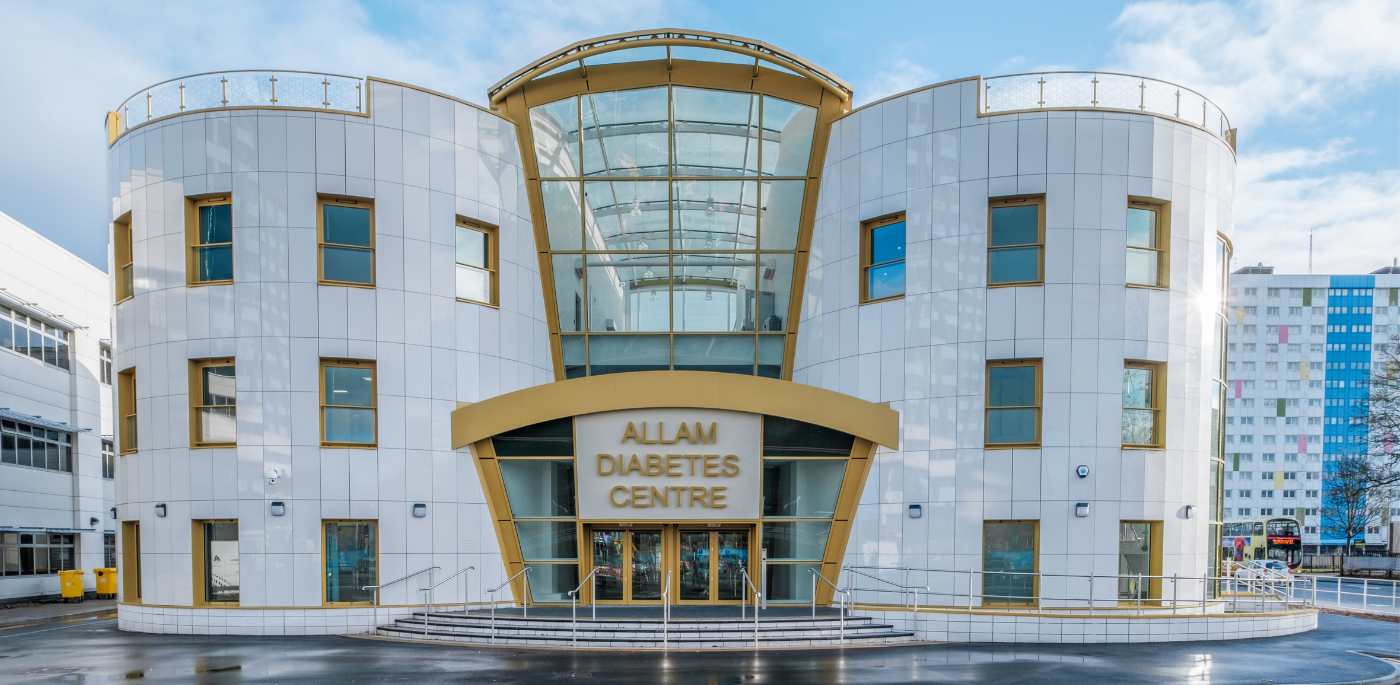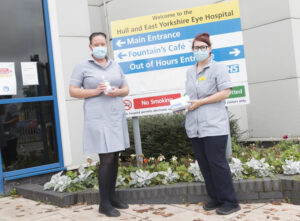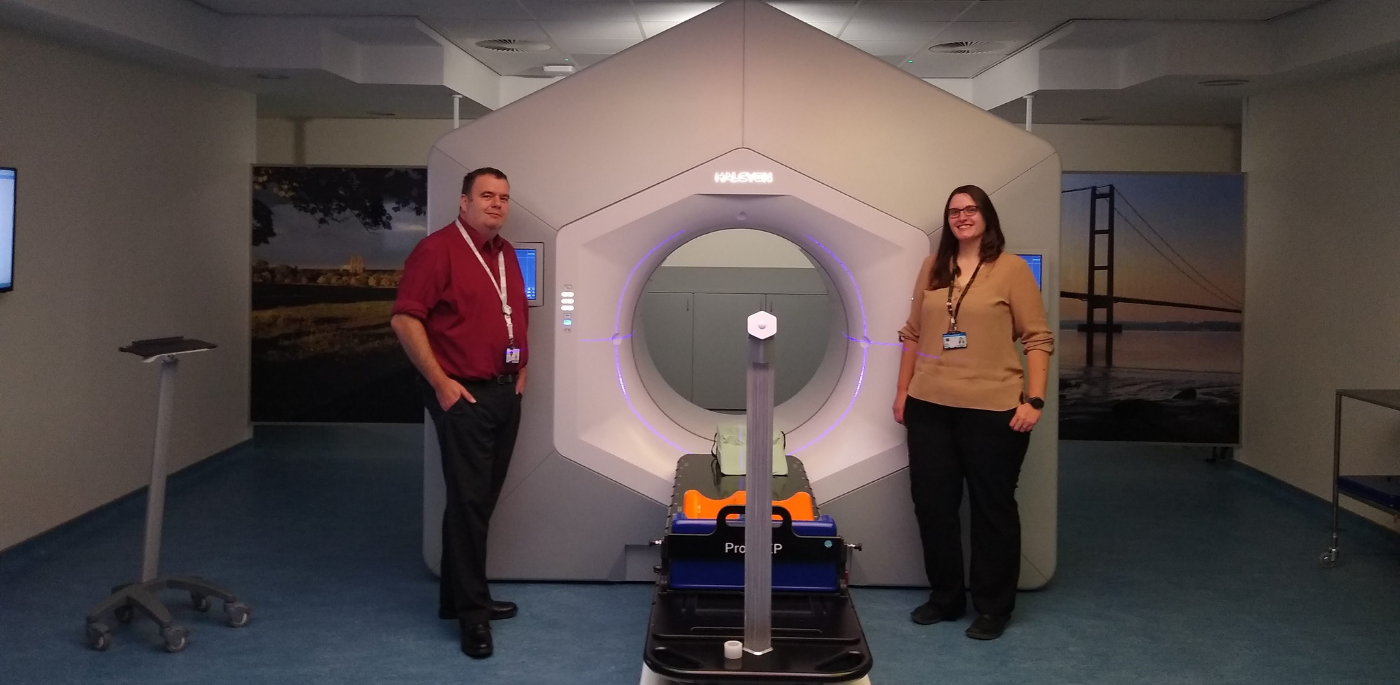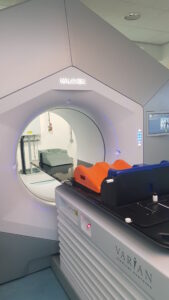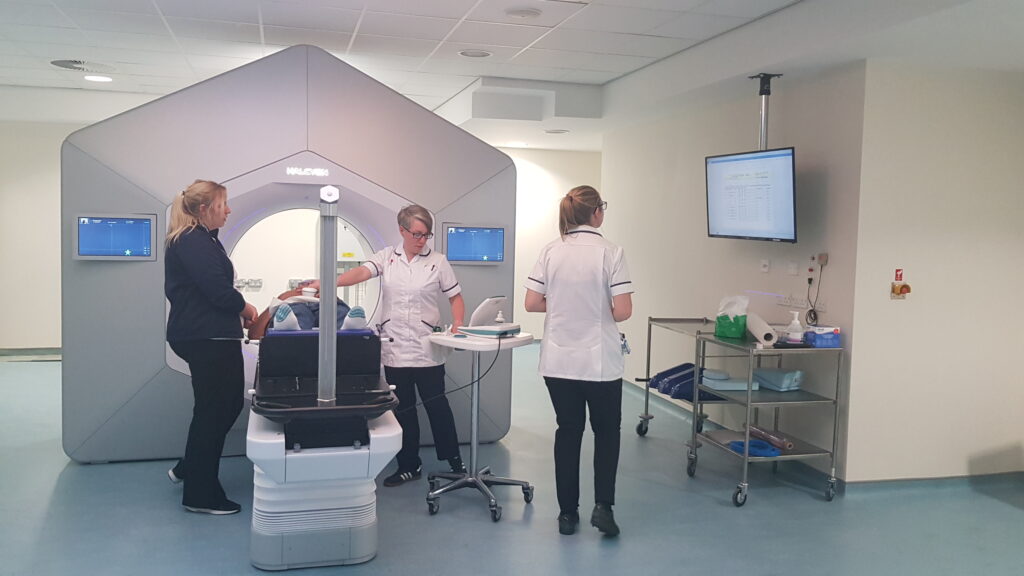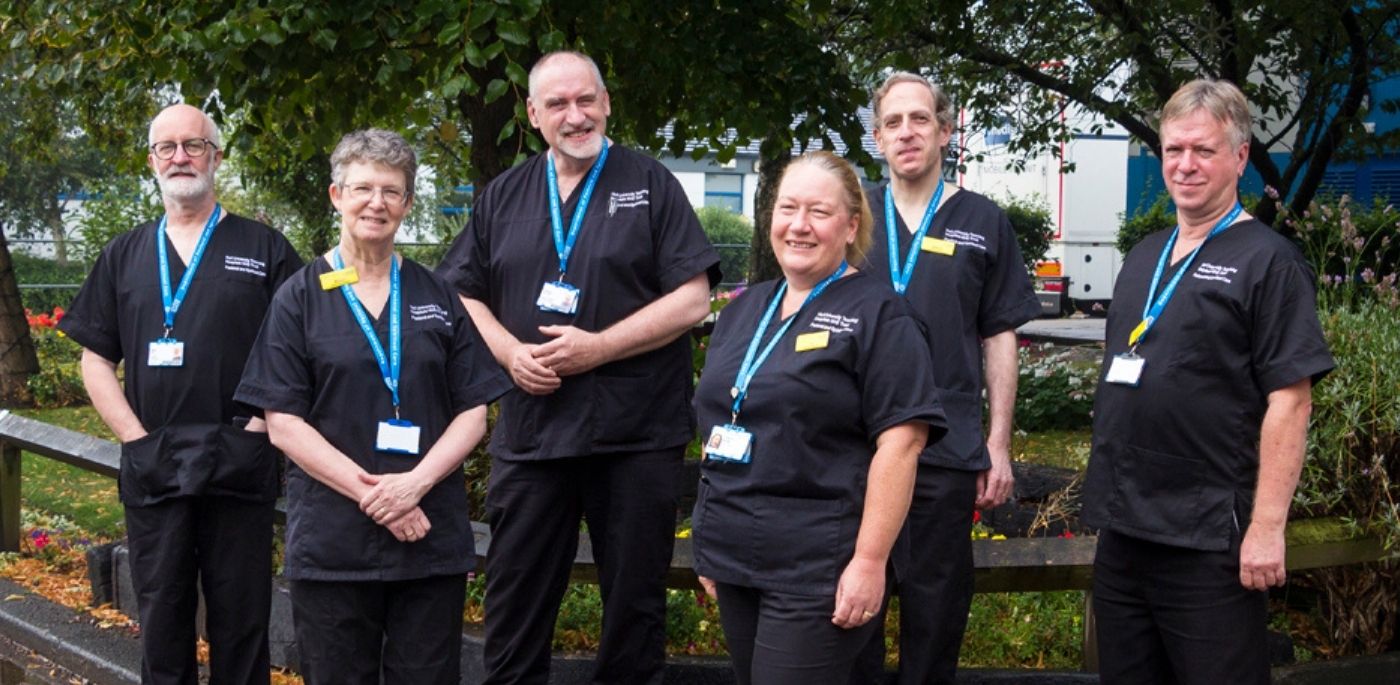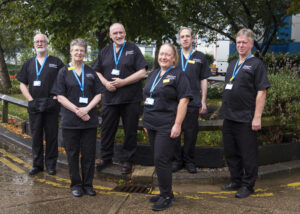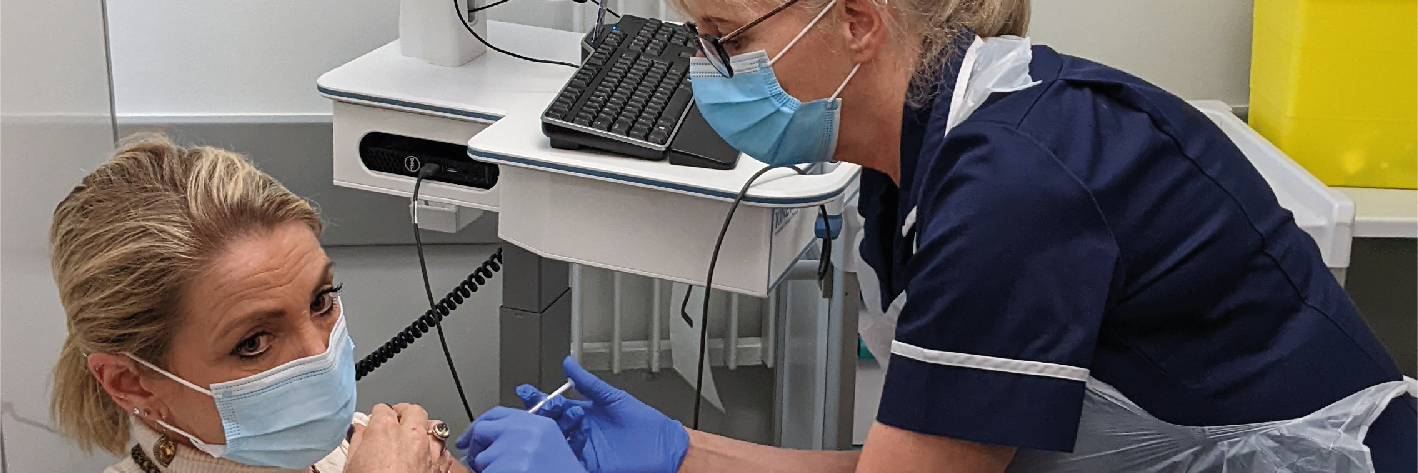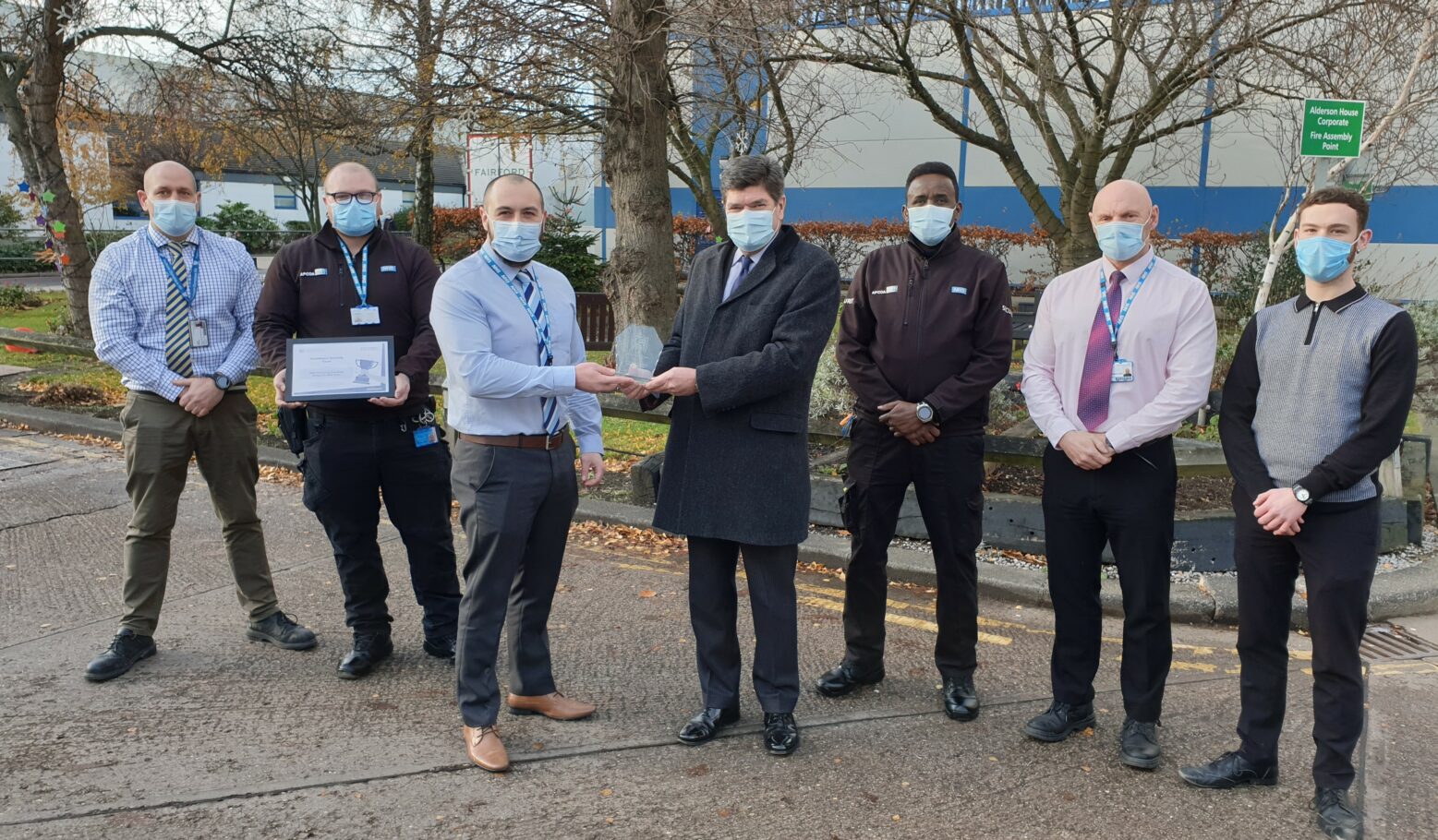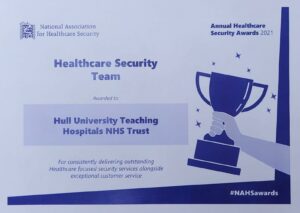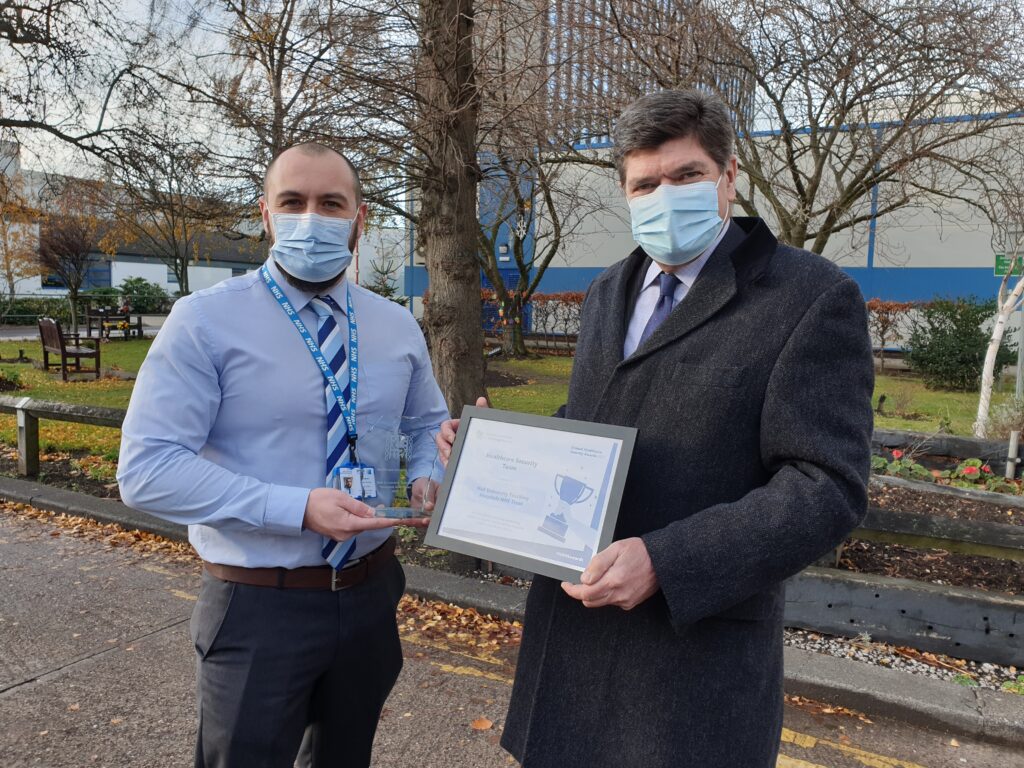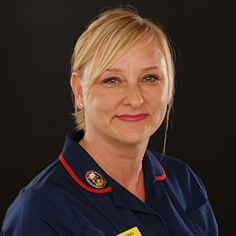Its sleek design and bold frontage are a far cry from what may traditionally be thought of as a hospital building, but then the new Allam Diabetes Centre is anything but ordinary.
The latest building to open on the Hull Royal Infirmary site has been generously supported by local businessman and philanthropist, Dr Assem Allam, with a donation of £3m. The balance has been provided by Hull University Teaching Hospitals NHS Trust, with the overall cost of the building development amounting to some £7.5 million.
After 12 months under construction and now boasting a light and airy feel, this new centre of excellence is serving as a hub to treat more than 9,000 people every year for diabetes and metabolic bone diseases such as osteoporosis. In addition, it is providing a significantly expanded range of accommodation for world-class diabetes and endocrinology research and other research teams.

The Allam Diabetes Centre on Anlaby Road
The vision originally set out by Dr Allam for the building’s curvaceous design has been made a reality with the support of the Zenith Development Group, and now enhances both the hospital estate and the gateway to the city centre as you travel along Anlaby Road.
Dr Allam says:
“It is a privilege for my family to be able to play a part in providing such a much-needed facility, which will not only care for the needs of patients with diabetes, but also support world-class research in the field of diabetes and endocrinology and related research activities such as vascular surgery. Bringing together both the clinical and research staff and facilities in one building will, without doubt, enhance the standard of care as related research informs the development of treatments in the coming years.
“Not only does the building do justice to the care and dedication of the existing clinical and research teams, but also it will play its part in continuing to attract high calibre staff to the area. Whilst the planning and development of this facility has taken a number of years, it has been well worth the wait.”
On the ground floor there is a large open waiting area leading to generously proportioned clinical facilities for all of Hull University Teaching Hospitals NHS Trust’s diabetes and endocrinology outpatient services. Expanded diabetic eye screening facilities are now housed here and there is dedicated space for diabetic foot care.
The bone densitometry service, which helps to identify and manage bone conditions such as osteoporosis and which regularly performs in excess of 5,000 bone scans each year, also has a base here. This service has been on the receiving end of another generous donation from the Osprey Charity recently, having been gifted a further two bone scanners valued at £75,000 each to expand its diagnostic capacity.
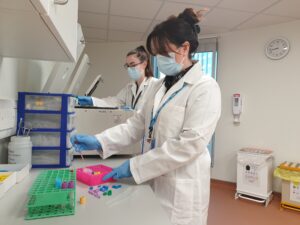
Diabetes and Endocrinology research
The Allam family donation has facilitated a significant increase in research accommodation within this building. This has resulted in purpose-designed, spacious and modern accommodation in which to undertake diabetes and endocrinology research, and the new centre is now helping to reaffirm Hull’s reputation as a global leader in research too.
The entire first floor has been given over to diabetes and endocrinology research and the staff supporting this work, which seems fitting given this team is the most successful recruiter into endocrine studies in the whole country.
Their cutting-edge research facilities now include dedicated laboratories, a sports science laboratory, ultrasound, ECG and consulting rooms plus day case facilities for complex clinical trials. The team currently has over 200 people involved in 12 active clinical trials right now, the findings of which will go on to benefit people with long-term conditions by significantly advancing treatment options and medical knowledge.
Patient education sessions are already being delivered on the second floor, and further research teams, including those specialising in vascular surgery and neurology, are due to move in there over the next few weeks.
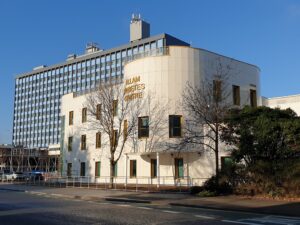
The Allam Diabetes Centre, on the Hull Royal Infirmary site
Dr Belinda Allan, consultant diabetologist, says the accommodation for the Hull diabetes service now reflects the high quality of care the team already prides itself upon:
“The ambition of the clinical teams at the Allam Diabetes Centre is to deliver world-leading care for individuals with diabetes, endocrine and metabolic bone conditions.
“The purpose-built outpatient facilities provide a bright, welcoming and modern environment, modelled around the needs of the patient. Integration of services means that patients can access specialist nurses, specialist dietitians, retinal screening, vascular surgery, podiatry, bone density scans and phlebotomy all on the same floor. The larger multi-purpose clinic rooms make it easier to bring the skills of specialist staff together to deliver the best possible care for our patients. The building also creates a great atmosphere for teaching and training the next generation of healthcare professionals serving the local communities of the Humber, Coast and Vale regions.”

Professor Thozhukat Sathyapalan
Professor Thozhukat Sathyapalan is an honorary consultant endocrinologist. In addition to providing clinical care to patients, he will also be leading on research projects and henceforth teaching students of Hull York Medical School in some of the most advanced, purpose-built educational facilities around. He says:
“The new Allam Diabetes Centre is a crucial next step in our journey to enhance and expand upon our established, world-renowned diabetes and endocrinology research. This facility houses the core infrastructure required to enable us to deliver an ambitious and innovative programme of diabetes and endocrinology research in an environment designed to stimulate collaboration, passion and growth.
“Bringing both clinical and research teams together under one roof allows us to promote research opportunities for all, and further enables us to deliver real and lasting improvements to patient experience and the quality of clinical care we provide within diabetes and endocrinology.”
Chris Long, chief executive of Hull University Teaching Hospitals NHS Trust says:
“It has been fantastic to watch this building take shape and we are incredibly grateful to Dr Allam and his family for their continued generosity in supporting our hospitals, our patients and our wider city.
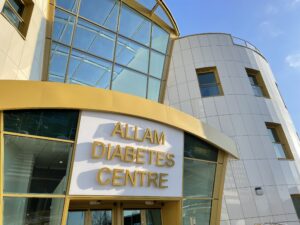
The entrance to the Allam Diabetes Centre
“The new Allam Diabetes Centre is a striking building and we trust that our patients will appreciate their new surroundings. When combined with the innovation, experience and significant expertise of our clinical and research teams, I’m confident that Hull can now cement its reputation as a global leader in the fields of diabetes and endocrinology service provision and research.”
This most recent donation towards the Allam Diabetes Centre is just one a number of contributions made by the Allam family to enable Hull University Teaching Hospitals NHS Trust to enhance the provision of clinical care and clinical research facilities for people across Hull, the East Riding and wider region.
Previous donations amounting to multi millions of pounds have supported the development of robotic surgery at Castle Hill Hospital, for example, delivered the Fatima Allam Birth Centre within Hull Women and Children’s Hospital, and contributed to research into cancer, cardiac and neurological conditions through the Daisy Appeal’s Molecular Imaging Research Centre, also based at Castle Hill.
Work is currently underway on a new digestive diseases and endoscopy facility at Castle Hill Hospital which has also been supported by Dr Allam and his family with a donation of £3 million. This facility is due to open in late summer 2022.

